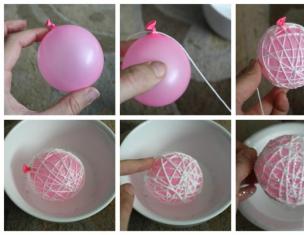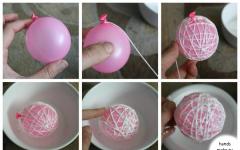Pregnancy is a state in which a woman must be especially attentive to herself. Alas, no one is immune from diseases during this period. Headaches, toothaches, joint pains, colds and high fevers can occur more than once in nine months.
Critical moments of pregnancy

At other times, you will drink painkillers without hesitation, but while waiting for the baby, especially on early dates, not all drugs are safe and suitable for use. There are several dangerous periods in pregnancy:
- From the moment of conception to the tenth day. Potent painkillers that have a toxic effect often cause abortion at this time.
- The period of organogenesis, lasting until the 28th day of pregnancy. At this time, the formation of future tissues and organs of the baby takes place and the teratogenic effect of drugs that disrupts their development occurs quite often.
- The period from the fourth to the ninth week. Medicines although they no longer have a teratogenic effect, they can slow down the development of the fetus.
- From the ninth week until delivery. At this time, the drugs do not have a direct effect on the growing baby. However, their unjustified and uncontrolled reception may affect its further development after birth.
- The period immediately before the birth and the birth itself. Incorrect use of medications can affect a newborn in the neonatal period, which starts from the moment the umbilical cord is tied and lasts up to 28 days.
Classification of painkillers

There are many drugs that can relieve pain. All the variety of funds can be divided into two main groups:
- Narcotic analgesics such as codeine or morphine. They act on the central nervous system and help to cope with even the most severe pain. Such drugs during pregnancy are used strictly on prescription in emergency situations and, as a rule, only in hospitals.
- Non-narcotic analgesics, subdivided, depending on the characteristics of the structure, into several groups. However, the most familiar and frequently used of these are drugs such as aspirin, drotaverine, paracetamol, ibuprofen, ketorolac and diclofenac.
Security categories
Some women, taking care of the health of the baby, completely refuse to use medications during pregnancy, preferring to endure the pain. Such a radical solution is also not entirely correct. The pain itself is a lot of stress and can sometimes cause much more trouble than taking pills.
Drinking painkillers during pregnancy and using ointments or suppositories is not only possible, but necessary! The main thing is to do it correctly and after consulting a doctor.
From the point of view of the effect on the fetus, all painkillers can be divided into several categories:
- Category A. Any risk is completely absent. Alas, such drugs practically do not exist. Even seemingly safe pain relievers such as herbs, homeopathic remedies or essential oils can carry a certain threat to a woman and her unborn child.
- Category B. With adequate use in therapeutic doses, there is no risk and effect on fetal development. Paracetamol, recognized by the World Health Organization as one of the safest drugs for pain relief, can be attributed to this group of drugs. In addition, paracetamol is effective at elevated temperatures. This can also include tablets and ointments containing ibuprofen, which is allowed in the early stages, namely up to 30 weeks. In the third trimester, ibuprofen may reduce amniotic fluid, so you shouldn't use it.
- Category C. Drugs under certain conditions may have little effect on the developing fetus, especially in the first trimester, but the benefits of their use significantly outweigh the possible risks. This category includes, for example, drotaverine or papaverine, which are often used to relieve spasms during pregnancy, especially when increased tone uterus.
- Category D. The tablets and ointments related to it almost always affect the development of the fetus. However, there are situations where the benefit to the mother outweighs Negative consequences from their application. This category includes acetylsalicylic acid and almost all painkillers included in the NSAID group, for example, diclofenac or indomethacin. With unbearable pain, doctors sometimes prescribe injections of Baralgin. However, this drug is contraindicated in the early stages, namely in the first trimester of pregnancy.
- Category E. The potential benefit from the use does not justify the high risk. Preparations of this group are contraindicated for use during pregnancy.
- Category X. Dangerous for the fetus drugs that adversely affect its development and are absolutely contraindicated for use during pregnancy.
Pain is a signal that something has happened in the body. Therefore, if it occurs, in any case, you should consult a doctor.
Candles and ointments

It is believed that the outer dosage forms have a less pronounced effect on the body than tablets, and even more so injectables. However, this is not at all the case. Active substances from any form of drugs enter the bloodstream, which means that they can potentially affect the fetus and its development.
In the case of ointments, this happens more slowly, since the components that make up them, before acting, overcome such a powerful protective barrier as the skin.
But suppositories, on the contrary, are not much inferior to injectable forms in terms of the speed of the onset of the effect, since they contact directly with the mucous membrane, which is easily bypassed and immediately enter the bloodstream.
When choosing painkillers during pregnancy in the form of suppositories or ointments, you should carefully read the instructions. Many of them may have contraindications and restrictions on use.
As with pain relief pills, you can use rectal suppositories containing paracetamol or ibuprofen. As prescribed by a doctor, in some cases, suppositories with papaverine or hyoscine can be used to relieve spasms.
What drug to choose?
The mixed center of gravity and the increased weight make the joints constantly cope with high loads. It is not surprising that muscle and joint pain during pregnancy, especially in last trimester Not unusual.
Often in addition to them are swelling, heaviness and pain in the legs. Not wanting to take pills, many women prefer to deal with such a problem with ointments. But you should be careful in choosing them:
- For pain in the lower back and joints in the first and second trimester, ointments containing ketoprofen, diclofenac, ketorolac and ibuprofen can be used. However, they should be used only after consulting a doctor and with caution.
- On the later dates for this purpose, only herbal products can be used, for example, ointment with arnica. Painkillers containing bee or snake venom are contraindicated during both pregnancy and breastfeeding.
Any warming ointments, patches or compresses are also contraindicated. The fact is that their action is based on the ability to increase blood flow to the inflamed area. In turn, this can provoke its outflow from the placenta. The result will be a lack of oxygen in your baby.
As for swelling and pain in the legs, gels or ointments with troxerutin and heparin can be used to improve the condition, but only under strict indications and under medical supervision. With almost no restrictions, you can use ointments and gels containing escin, a natural substance extracted from horse chestnut.
Homeopathic preparations

Preparations made using ultra-low dilutions are considered practically safe. Therefore, they are often used during pregnancy. However, this view is also misleading.
Homeopathy can have a rather strong effect on the body, so it must be used with caution.
There is a fairly extensive list of drugs, for example, the Heel line, which women can drink during pregnancy to relieve headaches or toothaches and to get rid of joint and spinal problems.
Moreover, they are produced both in the form of tablets or drops, and in the form of injections.
In life, different situations can arise. Sometimes a woman takes strong painkillers, not yet knowing about the onset of pregnancy. In this case, the main thing is not to rush to extremes. Be sure to write down the name of the drug and consult with your doctor. A single use of even strong drugs, as a rule, does without consequences.
During pregnancy, every woman tries to protect herself and her unborn child from the risk associated with influenza and SARS. They are especially dangerous in the first trimester, because during this period the formation of organs and systems of the fetus occurs. To prevent disease during seasonal epidemics viral infections, the expectant mother should apply preventive measures. An effective solution is the use of Oxolinic ointment.
Composition and action of the drug
One of the effective means of preventing and protecting against viral diseases is the use of antiviral drugs. Viruses easily enter the body through the mucous membranes of the nose and mouth. If they do not encounter obstacles, then they penetrate into healthy cells and then actively begin to multiply.
The action of Oxolinic ointment is aimed at suppressing the activity of microorganisms: when they get on the mucous membrane lubricated with the drug, they lose their mobility and die. Thus, the drug creates a kind of barrier that protects the body.
It is worth noting that Oxolin only acts on viruses and is completely ineffective against bacteria. That is why during pregnancy it is recommended not only to use antiviral drugs but also to strengthen the body's defenses.
The danger of colds and flu in early pregnancy - video
Use of Oksolin during pregnancy according to the instructions
A sufficient number of studies studying the possibility of using the drug during pregnancy have not been conducted. But despite this, doctors often recommend Oxolinic ointment for prevention, since it is a local remedy and is practically not absorbed into the systemic circulation. Doctors explain their position by the fact that the influenza virus is more dangerous for the unborn child (especially in the first trimester), so an effective preventive measure - the use of Oksolin - is a justified step.
Indications and application features
The drug is available in the form of an ointment 0.25% and 3% white or yellowish, odorless. The active substance is oxolin. This is an antiviral agent that is used only topically and is recommended for use in such cases:
- prevention of flu and colds;
- viral;
- herpes virus;
- adenovirus infection;
- viral lesions of the mucous membrane of the eyes.
As a preventive measure, for the treatment of viral eye infections and viral rhinitis, an ointment with an active ingredient concentration of 0.25% is prescribed. The drug containing 3% oxolin is intended for the treatment of dermatological diseases.
Today Oxolinic ointment is very often used during pregnancy. It is recommended to apply it on the nasal mucosa 2-3 times a day before going out and going to crowded places. But it should be remembered that in any trimester a woman should discuss the use medicines with your doctor.
The decision to use Oxolinic ointment is made only by a doctor after a thorough study of the course of pregnancy. The dosage and maximum time of application is also determined by the doctor.
Contraindications and side effects
Oxolin is very widely used, especially during the flu season and acute respiratory viral infections. According to the instructions, this drug should not be used only in case of individual sensitivity to the active substance or additional components of the ointment. Side effects appear in the form:
- a short burning sensation when applied to the mucous membranes;
- superficial;
- the appearance of liquid watery discharge from the nose.
If they occur, you should consult your doctor. The first two reactions can lead to discontinuation of the drug. The latter is not a reason to stop using the ointment. As a result of applying oxolinka, staining is possible skin in a bluish tint, which is easily washed off. This phenomenon is not dangerous, so you should not worry.
Oxolinic ointment can be used with other medicines after consulting a doctor.
The opinion of doctors about Oksolin
Despite the fact that the use of Oxolinic ointment for prophylactic purposes is very common, the opinions of experts regarding this drug are divided. Some doctors deny efficiency oxolin for the prevention of viral diseases, citing the fact that not enough research has been done. In theory active substance able to destroy the virus, but in practice its effect has not been proven. Doctors say that the ointment prevents the penetration of microorganisms into the body mechanically, creating a kind of shield. But the components of the ointment cannot destroy them themselves.
However, many years of experience and positive feedback from pregnant women who successfully used it for prevention and did not get sick during colds and epidemics speak in favor of the use of Oxolinic ointment.
Oxolinic ointment for the prevention of influenza: is there an effect? - video
How can I replace Oxolinic ointment during pregnancy
Today on the Russian market there is a large number of antiviral drugs. Complete analogues of Oxolinic ointment are:
- Tetraxoline;
- Oxonaphthylin.
If for some reason a pregnant woman cannot use Oxolinic ointment, the doctor will select another safe and effective remedy, for example, Viferon, Oscillococcinum, Arbidol or Grippferon.
Antiviral drugs allowed during pregnancy - photo gallery
Oscillococcinum is a homeopathic remedy for colds, influenza  Grippferon - a drug from the group of interferons with immunomodulatory and antiviral effects
Grippferon - a drug from the group of interferons with immunomodulatory and antiviral effects  Arbidol is a well-known antiviral agent
Arbidol is a well-known antiviral agent  Viferon - immunomodulatory drug with antiviral action
Viferon - immunomodulatory drug with antiviral action
Comparative characteristics of antiviral drugs - table
| Name | Release form | Active substance | Contraindications | Use during pregnancy |
| homeopathic granules | extract of the liver and heart of the duck Barbary |
| The drug is used according to the doctor's prescription. | |
|
| Approved for use during the entire period of pregnancy | ||
| umifenovir | Hypersensitivity reactions to active or excipients that make up the drug. | Use during pregnancy and lactation can only be prescribed by a doctor, since studies have not been conducted, there is no reliable information about the safety of the drug. | |
| interferon alfa-2b human recombinant | Since, with external and local application, the systemic absorption of interferon is low and the drug has an effect only in the lesion, it is possible to use Viferon in the form of an ointment and gel during the period of bearing a child. Candles can be used from the 14th week of pregnancy. |
Prevention of flu and colds without drugs
To protect yourself from influenza and SARS, a pregnant woman should great attention take preventive measures. To date, there are rules, following which, you can reliably protect yourself and easily overcome the virus if it enters the body.
- Hydration. The room in which the expectant mother lives should not be stuffy and hot. Heat promotes drying of the mucous membranes of the nose, and viruses easily penetrate the body. Doctors recommend frequently ventilating the room, using humidifiers, and rinsing the nasal cavity with seawater solutions before each exit from the house and after returning.
- Hygiene. A mandatory rule is to wash your hands with soap after visiting the street, clinic, trip to public transport and before meals. Doctors recommend purchasing antibacterial wipes or solution and carrying them with you.
- Proper nutrition. It is necessary to eat fresh fruits rich in vitamins every day, eat more fermented milk products, because there are a lot of lactobacilli that colonize the intestines and maintain the correct microflora in it. Pregnant women are often advised to drink cranberry juice, it contains a huge amount of vitamin C, which strengthens the immune system. Cranberries also have anti-inflammatory properties and are very useful while expecting a baby.
- Try not to be in crowded places. In such an environment, the likelihood of contracting the flu or a cold is higher.
- Use antiviral drugs. Medicines that protect the body from the penetration of viruses are an excellent preventive measure. The doctor at the consultation will definitely recommend a safe and effective remedy. Often, for this purpose, Oxolinic ointment is prescribed.
Measures to prevent colds and flu during pregnancy - video
Instruction
Do not use cosmetic and medical creams, which include retinol and retinoids - vitamin A and its derivatives. The use of such a cream is unacceptable, since high doses of vitamin A can cause serious harm to the future. Vitamin A and retinoids are found in acne and acne creams, as well as many anti-aging and sunscreens. Retinoids can also be found in foundation creams. They are listed on the packaging as adapalene, tretinoin, isotretinoin, and tazarotene.
Remove any creams with synthetic perfumes and fragrances from your cosmetic bag. Perfumed products contain phthalates, which have a toxic effect on the body of the expectant mother and can harm the normal development of the fetus. And if during pregnancy you still want to use creams with pleasant aromas, it is better to choose such cosmetic products among children's cosmetics that do not contain fragrances and synthetic fragrances.
Do not use salicylic acid creams during pregnancy. This component is part of the therapeutic creams for skin rashes and acne, as well as various cleansing and anti age funds. In small quantities, salicylic acid is not able to adversely affect the health of the unborn child. However, experts still recommend abandoning salicylic acid creams during pregnancy, since with constant use it can cause various complications and adversely affect the development of the fetus.
During pregnancy, it is not allowed to use skin whitening creams and self-tanning creams. Whitening products and creams to improve complexion contain glutathione and hydroquinone, which have a harmful effect on the formation of a healthy dermis of the child. In addition, these substances often provoke the development of allergic reactions. And in the composition of self-tanning creams there is a substance that easily penetrates into the blood (, or DHA) and can negatively affect the process of fetal formation.
Some creams containing herbal extracts should also not be used during pregnancy. So, cosmetics with an extract from papaya, with regular use, negatively affect the work. nervous system and gastrointestinal tract, and also slow down the heartbeat. Therefore, before the cream, carefully study its composition: if any component is in doubt, it is better to refuse to buy.
note
You should not worry if you have already used any of the creams listed above during pregnancy. When used in small amounts, they are usually not capable of causing harm. It is enough to stop using these creams and find a safe alternative to them - natural remedies based on herbal ingredients.
Tip 2: What cosmetics can be used during pregnancy
From the first weeks of pregnancy in the female body there is a change hormonal background, which can lead to changes in the condition of the hair, skin type, as well as possible stretch marks and age spots. As a result, allergic reactions may appear on proven cosmetics. That is why it is better to abandon the usual cosmetics and give preference to cosmetics specially designed for pregnant women.
Instruction
Discard the usual tubes and jars, replacing them with products of a more natural origin and gentle action. When choosing cosmetics, first of all, you need to pay attention to its composition. It should be free of dyes and fragrances. The maximum amount of natural ingredients is the main rule of cosmetics in interesting position.

Use to prevent the appearance of stretch marks in the area and chest. They can be used from the first weeks of pregnancy. The main requirement for the cream is the naturalness of its components and a pleasant smell. Desirable ingredients should be natural oils and vitamin E, in addition, the cream must be dermatologically tested.

Limit your exposure to the sun so as not to provoke the appearance age spots. It is strictly forbidden to use bleaching creams in case of their appearance. Here, masks made from sour cream, parsley, curdled milk or cucumbers will help as a means of struggle. Mask age spots with mineral loose powder, which does not contain preservatives or other chemical substances.

Use creams with UV protection. This is especially true for regions with a long warm period and bright sun. The means used must be of medium and high degree of protection, i.e. SPF30.

Pay attention to your lips. The thing is that during pregnancy, a woman's body begins to lack vitamins A, E and F. As a result, cracks begin to appear. Avoid using long-lasting lipsticks as they dry out the delicate skin of your lips. Give preference to a specially designed decorative one that is enriched with vitamins. It is also recommended to pre-apply a layer on the lips hygienic lipstick or baby cream. And already on top of this layer, you can apply lipstick.

Take care of your eyes! During pregnancy, your eyes are especially prone to all kinds of infections, so you should immediately stop using waterproof mascara. The use of eyeliner is also not recommended. Choose hypoallergenic mascara. Eyeshadow lovers are advised to replace oily eyeshadows with dry ones. And finally, be sure to purchase a hypoallergenic eye and eye make-up remover.

Everyone chooses makeup to taste. But in the preparation of the base - the skin - there are common points ... Especially if you are pregnant. After all, it turns out that not everyone will fit.
Marina Vaulina, a dermatologist, chief physician of the Univel Center for Medical Cosmetology, tells the site for mothers about the features of choosing a cream for pregnant skin.
"Pregnant" skin and its problems
Some lucky women manage to keep in perfect condition with the help of water and cleansers. But most need good cream . It is possible that you have already chosen it a long time ago.
but during pregnancy, you should think about special cosmetics. As a result of a powerful hormonal attack, the skin changes, and long-loved creams may simply not be able to cope with their task. That is why you need a special cream during pregnancy!
All processes that occur with the skin for nine months can be divided into three groups:
- skin manifestations of diseases that occur during pregnancy;
- strengthening and exacerbation of diseases that were observed before it;
- physiological processes associated with the "interesting position".
In the first two cases, a doctor's consultation is required. BUT physiological changes, one way or another manifested in every expectant mother, can be corrected with the help of cosmetics. That is why the cream during pregnancy should not be the same as usual.
Problem 1. Combi-skin
In time, thermoregulation changes, sweat and subcutaneous sebaceous glands work in an enhanced mode, and the amount of pigment secreted increases.
There are also changes in the circulatory system - the volume of blood in the body increases, venous vessels become more fragile, and the capillary network often expands. The skin reacts to it the appearance of age spots (chloasma), oily sheen, small rash, itching and rashes.
Increased oiliness of the skin of the face can be observed simultaneously with severe dryness of the skin of the body - both of these symptoms cause discomfort.
Solution: In stores for expectant mothers and babies, special cosmetics are sold. Cream during pregnancy usually contains solar filter combination to prevent chloasma. It may include useful essential acids, natural oils, skin lightening vitamin C, which prevents excessive pigmentation, and vitamin E that prevents inflammation.
Such creams during pregnancy are characterized by the complete absence of perfume (perfumes) - in order to avoid the slightest risk of allergies or effects on the heightened sense of smell caused by hormonal changes. High security guarantee icon “Approved by I.D.E.» (European Institute of Dermatology). You can also buy a hypoallergenic moisturizer from the so-called pharmacy lines - it will also work as a cream during pregnancy.
Problem 2. "Asterisks"
Visible on the skin vascular "asterisks"- dilated intradermal blood vessels. "Asterisks" can take the most bizarre forms: from the smallest bright red "spiders" with thickened "paws" to massive angioectasias ("angio" - vessel, "ectasis" - expansion) tree structure. The appearance of vascular defects is associated both with a change in the hormonal background in the body, and with the peculiarities of the structure of the skin.
Solution: to avoid this problem, already from the first trimester of pregnancy - creams with angioprotectors - substances that improve the activity of blood vessels. They contribute to the activation of microcirculation, normalize the permeability of the vascular walls.
Problem 3. Acne
An increase in the level of the hormone androgen in expectant mothers usually contributes to an increase in the activity of the sebaceous glands. Excess sebum, combined with dead skin cells that shed hair follicles, clogs pores. A favorable environment is created for the reproduction of bacteria, which leads to to skin inflammation and acne.
Solution: skin care should be directed for moisturizing and cleansing. With increased fat content and "teenage" rashes, you can fight with the help of delicate peels and creams from dermatological lines. You should not choose them yourself, it is better to consult a dermatologist, he will help you choose such a safe cream during pregnancy.
However, it helps everyone mask prepared according to folk recipe» – simple, but very effective. You need to take oatmeal and grind it in a coffee grinder, add kefir, cream or milk. The mass should be similar in consistency to thick sour cream. Apply to the face as a mask or perform a light peeling massage.
The enemy will not pass: what creams can not be used during pregnancy
If the skin tolerates the cosmetics that you used before pregnancy, it is not necessary to refuse them. let yourself even buy something new in a regular perfume shop. But sure read the information on the label! In a jar or tube, there may be ingredients that are strictly contraindicated during pregnancy.
Enemy number 1. Retinoids
This is a class of chemical compounds based on vitamin A, which are often included in the composition of anti-aging (age) products. Retinoids "start" the process of active cell division, that is, they contribute to the reduction mimic wrinkles and make the skin smoother and more elastic. But shock dose of vitamin A will damage the fetus. Therefore, such creams should not be used during pregnancy!
The fact that retinoids are part of a cosmetic product is indicated by the following terms on the label:
- Differin (adapelene);
- Retin-A, Renova (tretinoin);
- Retinoic acid (retinoic acid);
- Retinol (retinol);
- Retinyl linoleate (retinol linoleate);
- Retinyl palmitate (retinol palmitate);
- Tazorac and avage (Tazarotene).
Enemy number 2. Salicylic acid
A well-known compound, popular in the cosmetic industry. The advantage of "salicylic" is the ability to gently remove dead skin cells, while at the same time providing a weak antiseptic effect. That is why salicylic acid is included in many cleansing tonics for oily and acne prone skin.
During pregnancy, salicylic acid cream should not be used, because it is often leads to various fetal pathologies and complications.
If cosmetic product made with salicylic acid, on the label you will read the following names:
- Salicylic acid (salicylic acid);
- BHA, BHA or Beta hydroxy acid (beta hydroxylic acid).
Enemy number 3. Perfumes
Not dangerous in and of themselves, but they can provoke an allergic reaction. Therefore, even if there was no tendency to allergies before pregnancy, it is better not to take risks and refrain from acquiring too pleasantly smelling products. Moreover, the choice of perfumes without fragrances is now very large.
It is important!
If you find it difficult to remember the names of all the harmful ingredients that should not be in the cream during pregnancy, just write them on a piece of paper and put them in your purse or purse.
Beauty salon: what is pregnant and what is not?
Nobody forbids expectant mother on the eve of the holiday to visit a loved one beauty saloon. However, the list of services will have to be adjusted.
Be sure to tell the masters that you are expecting a baby. Bye don't do it chemical peels, injections and physiotherapy.
Useful delicate wraps and massages, aimed at general relaxation, reducing swelling, moisturizing and nourishing the skin.
Decorative cosmetics– only from hypoallergenic lines.
By the way, many salons and spa centers offer special programs for women who are in an "interesting" position.
--
Article submitted to the site magazine "I want a child!"
For copy this article you do not need to obtain special permission,
but active, a link to our site that is not closed from search engines is MANDATORY!
Please, observe our copyright.
Copying an article without specifying the author and linking to the site will be regarded as a violation of our copyrights.
During the bearing of a child, a very large load is placed on the vessels of the circulatory system of a woman. The expectant mother develops stagnation of blood in the veins, develops varicose veins, thrombophlebitis, and hemorrhoids appear. In this case, the use of medications that will correct the situation is inevitable. However, not all drugs designed to combat vascular problems can be used by a woman who is in position. In this article, we will consider in detail the question of whether Heparin ointment can be used during pregnancy by a woman if she has problems with blood vessels.
What is Heparin Ointment? In fact, it is a direct-acting coagulant, a complex drug that prevents the formation of blood clots in the vessels. The composition of the ointment includes 3 components:
- Heparin, which reduces the amount of thrombin in a woman's blood, relieves inflammation and prevents swelling.
- Benzyl nicotinate, dilating blood vessels, contributing to better absorption of heparin.
- Benzocaine, which has anesthetic effect so that the woman does not feel severe pain.
In other words, Heparin ointment is a drug that affects blood clotting. This means that women who are expecting the birth of a baby need to use this ointment very carefully. It is strictly forbidden to start using it on your own. You must first consult with your doctor, who will weigh all the risks of its use for the mother, and for the fetus inside the womb.
Heparin and benzyl nicotinate are substances that are quickly absorbed by the blood, but do not worry that they can somehow harm the baby. These substances have a very low molecular weight, so they cannot cross the placenta and adversely affect the fetus. This is possible, according to the data of the American Food and Drug Administration, if Heparin ointment is used systematically and uncontrollably.
In what cases is Heparin ointment used during pregnancy?

As soon as the doctor discovers that a woman has a blockage of the vessels, or some kind of injury has occurred on the vessels, then he prescribes the use of Heparin ointment to her.
Among the main indications when you need to use this drug for treatment are:
- Thrombophlebitis, which has a superficial character, on the legs (a venous mesh appears on the skin, bulging blood clots appear in the veins).
- Heparin ointment is prescribed during pregnancy with hemorrhoids (in case the external hemorrhoids are severely inflamed and cause discomfort to the woman).
- Phlebitis (a rare indication), in which the veins become inflamed after a mechanical impact on them (a catheter was inserted, an injection was made).
- Periflebitis (a more complex form of phlebitis, in which external venous nodes are affected).
- Lymphangitis, in which the lymphatic system of a pregnant woman is damaged.
- Swelling of the hands and feet due to stagnation of blood in the body of a woman.
- Hematomas that form under the skin of any part of the body.
- It is used without fail Heparin ointment during pregnancy with varicose veins.
The doctor can prescribe Heparin Ointment at any stage of pregnancy, however, it must be remembered that in the last trimester it must be used very carefully, because heparin can cause bleeding and premature birth.
Heparin ointment: instructions for pregnancy

According to the instructions for use, Heparin ointment during pregnancy is used in exactly the same way as in the usual case, only here you still need to take into account the individual recommendations of the doctor. We will describe to you the standard way of using Heparin Ointment:
- If you need to cure hemorrhoids, then apply a little ointment on cotton wool or a special swab and attach it to the inflamed hemorrhoids. If you have not only external hemorrhoids, then you can insert a swab moistened with ointment into the rectum. To do this procedure for complete recovery is necessary within 2 weeks.
- If you hurt yourself, as a result of which a hematoma formed, then you can treat it with Heparin ointment, but not on the same day that the injury was received, but on the next day. Just lubricate the affected area with a small layer of medicine for 3-7 days (the duration of application depends on the severity of the bruise).
- If a pregnant woman has thrombophlebitis, then the affected areas should be gently lubricated with ointment three times a day for 3 weeks. In no case should the affected areas be massaged.
If the venous walls are excessively inflamed, then after applying the ointment, wrap the legs or arms (depending on which part of the body has a problem) with an elastic bandage.
Contraindications to the use of Heparin ointment during pregnancy

Any medication has contraindications for use. Heparin ointment is no exception. Pregnant women are strictly prohibited from using it if:
- they may have an allergic reaction to some component of the ointment (the skin may begin to swell, itch and blush);
- if there is a hematological disease associated with poor blood clotting and a low number of platelets in it;
- if there are wounds or erosive lesions on the skin where there is venous inflammation.
If you are not sure that an adverse reaction will not occur from the use of an ointment, then test it first. Apply a little on the skin, and then check what will happen to it after 24 hours. If no changes occur for the worse, then feel free to use Heparin ointment, but taking into account the recommendations of the attending physician.
If you find an allergic reaction, this does not mean that the underlying problem cannot be resolved. Heparin ointment can be simply replaced with:
- Trombless;
- Hepatrombin;
- Troxevasin;
- Venitan forte;
- Lavenum.
Heparin ointment is one of the budget drugs, so it is very popular among all people who have problems with blood vessels. However, do not save on the health of pregnant women. If Heparin ointment is not suitable for the expectant mother, then you should abandon this treatment option and choose a more suitable one.
Video: "Heparin ointment during pregnancy: reviews"









